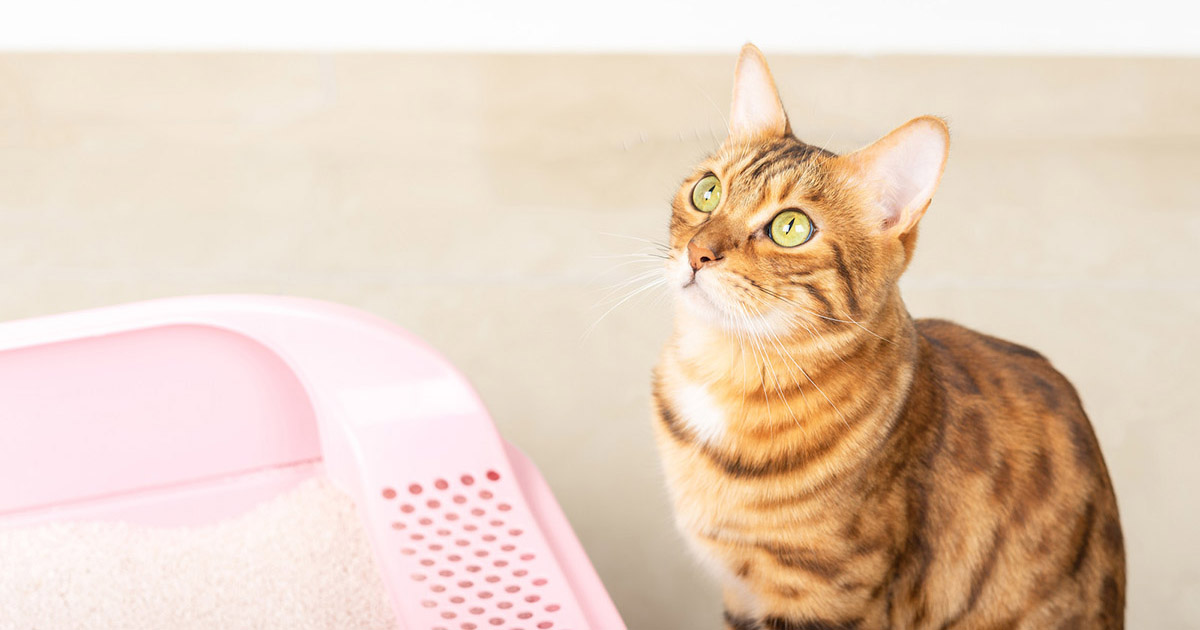The Consequences of Flushing Cat Poop Down Your Toilet - Safeguard Your Pipes
The Consequences of Flushing Cat Poop Down Your Toilet - Safeguard Your Pipes
Blog Article
We have uncovered this article involving Can You Flush Cat Poo or Litter Down the Toilet? directly below on the web and accepted it made good sense to talk about it with you over here.

Intro
As cat proprietors, it's vital to bear in mind how we take care of our feline friends' waste. While it might seem convenient to purge pet cat poop down the bathroom, this technique can have damaging repercussions for both the environment and human wellness.
Alternatives to Flushing
Luckily, there are more secure and much more accountable means to get rid of feline poop. Take into consideration the following alternatives:
1. Scoop and Dispose in Trash
One of the most usual approach of throwing away cat poop is to scoop it into an eco-friendly bag and throw it in the garbage. Be sure to use a dedicated litter scoop and deal with the waste quickly.
2. Usage Biodegradable Litter
Opt for eco-friendly pet cat clutter made from materials such as corn or wheat. These litters are eco-friendly and can be securely taken care of in the garbage.
3. Bury in the Yard
If you have a yard, think about burying feline waste in an assigned area far from vegetable yards and water sources. Make certain to dig deep enough to avoid contamination of groundwater.
4. Mount a Pet Waste Disposal System
Buy a pet dog garbage disposal system specifically developed for cat waste. These systems utilize enzymes to break down the waste, reducing smell and ecological impact.
Health and wellness Risks
Along with ecological issues, purging pet cat waste can also present health and wellness risks to people. Feline feces might contain Toxoplasma gondii, a bloodsucker that can trigger toxoplasmosis-- a potentially severe ailment, particularly for expecting ladies and individuals with weakened immune systems.
Ecological Impact
Flushing cat poop introduces dangerous microorganisms and bloodsuckers right into the water supply, posturing a considerable danger to water ecological communities. These contaminants can adversely affect marine life and concession water top quality.
Final thought
Responsible pet ownership extends beyond offering food and sanctuary-- it additionally includes appropriate waste management. By avoiding flushing cat poop down the toilet and opting for different disposal approaches, we can minimize our environmental footprint and shield human wellness.
Why Can’t I Flush Cat Poop?
It Spreads a Parasite
Cats are frequently infected with a parasite called toxoplasma gondii. The parasite causes an infection called toxoplasmosis. It is usually harmless to cats. The parasite only uses cat poop as a host for its eggs. Otherwise, the cat’s immune system usually keeps the infection at low enough levels to maintain its own health. But it does not stop the develop of eggs. These eggs are tiny and surprisingly tough. They may survive for a year before they begin to grow. But that’s the problem.
Our wastewater system is not designed to deal with toxoplasmosis eggs. Instead, most eggs will flush from your toilet into sewers and wastewater management plants. After the sewage is treated for many other harmful things in it, it is typically released into local rivers, lakes, or oceans. Here, the toxoplasmosis eggs can find new hosts, including starfish, crabs, otters, and many other wildlife. For many, this is a significant risk to their health. Toxoplasmosis can also end up infecting water sources that are important for agriculture, which means our deer, pigs, and sheep can get infected too.
Is There Risk to Humans?
There can be a risk to human life from flushing cat poop down the toilet. If you do so, the parasites from your cat’s poop can end up in shellfish, game animals, or livestock. If this meat is then served raw or undercooked, the people who eat it can get sick.
In fact, according to the CDC, 40 million people in the United States are infected with toxoplasma gondii. They get it from exposure to infected seafood, or from some kind of cat poop contamination, like drinking from a stream that is contaminated or touching anything that has come into contact with cat poop. That includes just cleaning a cat litter box.
Most people who get infected with these parasites will not develop any symptoms. However, for pregnant women or for those with compromised immune systems, the parasite can cause severe health problems.
How to Handle Cat Poop
The best way to handle cat poop is actually to clean the box more often. The eggs that the parasite sheds will not become active until one to five days after the cat poops. That means that if you clean daily, you’re much less likely to come into direct contact with infectious eggs.
That said, always dispose of cat poop in the garbage and not down the toilet. Wash your hands before and after you clean the litter box, and bring the bag of poop right outside to your garbage bins.
https://trenchlesssolutionsusa.com/why-cant-i-flush-cat-poop/

We were made aware of that article on Don’t flush cat feces down the toilet through someone on another web blog. Kindly take the opportunity to share this article if you enjoyed it. We appreciate reading our article about Can You Flush Cat Poo or Litter Down the Toilet?.
Get A Quote Report this page